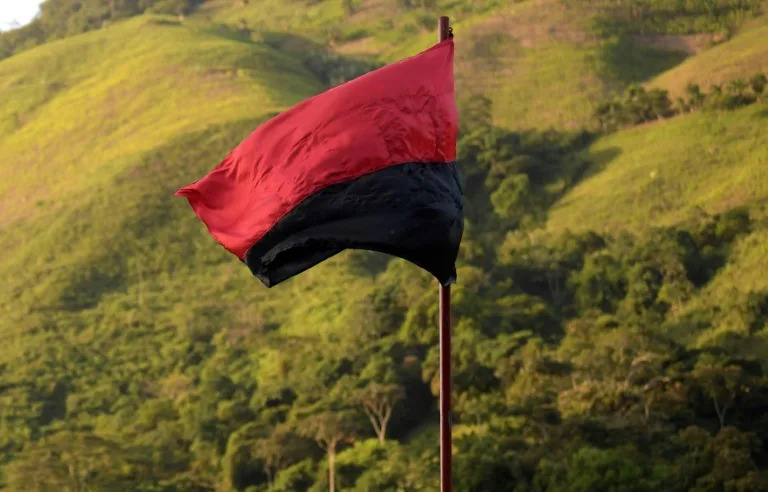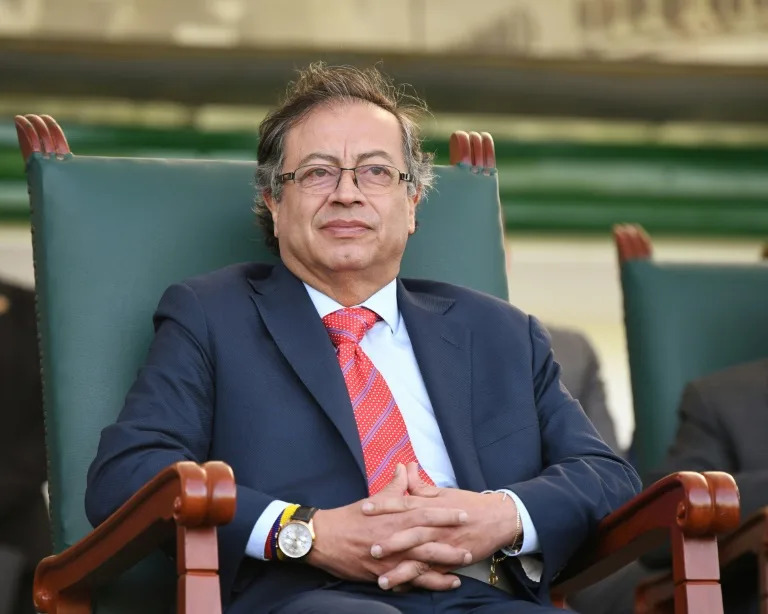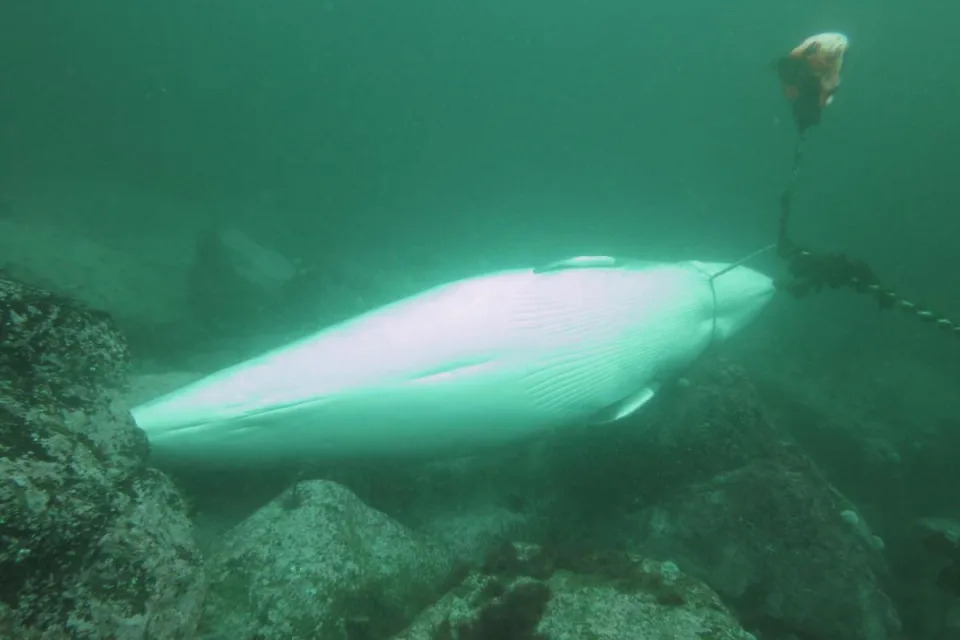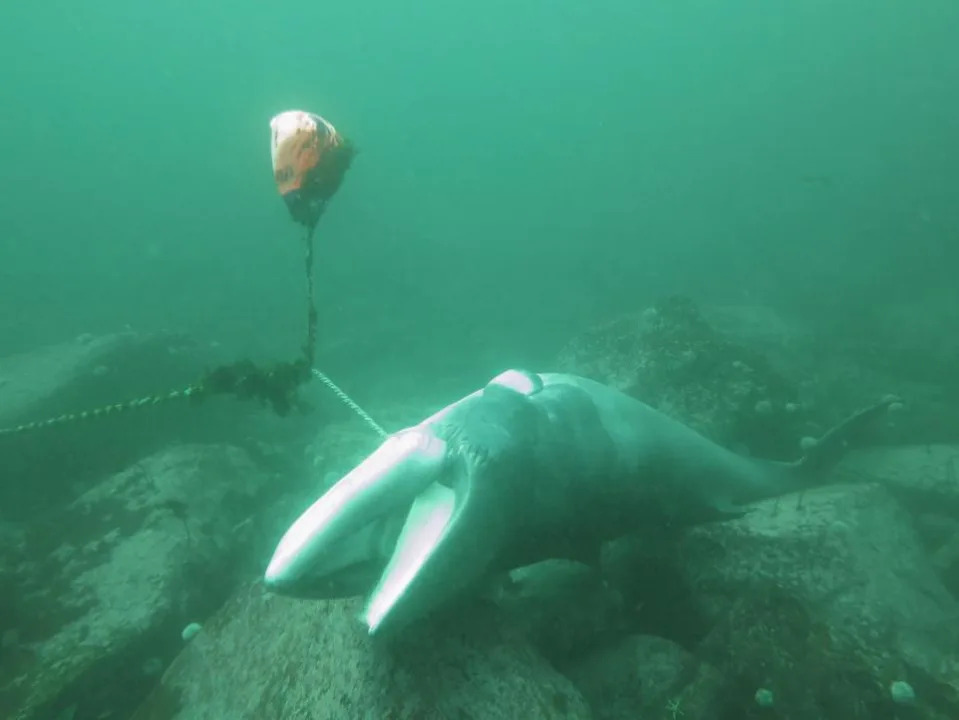Thu, 5 January 2023

National Liberation Army (ELN) FLAG
In announcing a "bilateral" ceasefire before it existed, Colombian President Gustavo Petro may have weakened his government in ongoing peace talks with armed groups, experts say.
Petro's New Year's Eve declaration was hailed by the United Nations and others as a step towards the "total peace" Colombia's first-ever leftist president has vowed to bring to the country.
But the ELN guerrilla group poured cold water all over Petro's declaration just three days later, denying the group had entered into any such deal, and the government conceded that nothing was signed.
Whether a calculated ploy to pile pressure on the ELN or mere miscommunication, Petro's move was a "mistake" that harmed "the legitimacy of the peace negotiations," conflict expert Laura Barrios of Rosario University told AFP.
"The biggest challenge here will be how the government will regain the trust of the ELN," she said.
For analyst Felipe Botero of the University of The Andes in Bogota, the events "revealed inexperience and political clumsiness."
It was a "setback for the government," said Botero, but would not necessarily compromise the talks themselves.
Petro's New Year's Eve declaration was hailed by the United Nations and others as a step towards the "total peace" Colombia's first-ever leftist president has vowed to bring to the country.
But the ELN guerrilla group poured cold water all over Petro's declaration just three days later, denying the group had entered into any such deal, and the government conceded that nothing was signed.
Whether a calculated ploy to pile pressure on the ELN or mere miscommunication, Petro's move was a "mistake" that harmed "the legitimacy of the peace negotiations," conflict expert Laura Barrios of Rosario University told AFP.
"The biggest challenge here will be how the government will regain the trust of the ELN," she said.
For analyst Felipe Botero of the University of The Andes in Bogota, the events "revealed inexperience and political clumsiness."
It was a "setback for the government," said Botero, but would not necessarily compromise the talks themselves.
- 'Renewed hope' -
On December 31, Petro announced that a ceasefire had been agreed with the country's five largest armed groups, including the National Liberation Army (ELN), from January 1 to June 30.

The government subsequently said the ceasefire would be monitored by the United Nations, Colombia's human rights ombudsman and the Catholic Church.
UN Secretary General Antonio Guterres said the supposed deal brought "renewed hope for comprehensive peace to the Colombian people as the New Year dawns."
But then on Tuesday, the ELN said it had "not discussed any bilateral ceasefire with the Gustavo Petro government, therefore no such agreement exists."
The group added that "a unilateral government decree cannot be accepted as an agreement."
This prompted the government to concede Tuesday that a proposed ceasefire decree had not been signed, and the following day to announce a suspension of a truce that never existed in the first place.
Petro, an active social media user, has been quiet in recent days.
- 'More expensive' -
Both the government and ELN have said the question of a ceasefire will be raised again in Mexico when talks resume later this month.
Negotiations between the government and the ELN, the country's last recognized rebel group, have been underway since November.
A first round of peace talks since Petro came to power in August concluded in Caracas, Venezuela on December 12 without a truce being agreed.
The ELN has already accused Petro of acting just like former "traditional governments" with which previous attempts at peace negotiations had failed.
Political commentator Andres Mejia Vergnaud said a ceasefire agreement has just become "more expensive."
"The government needs it a lot more, and the other side will get more in return," he said.
Petro's announcement had also included two dissident splinter factions of the disbanded FARC guerrilla group, the Gulf Clan narcotics outfit and the Self-Defense Forces of the Sierra Nevada, a right-wing paramilitary group.
The ELN, which has an estimated 3,500 members, is the only group to have refuted the existence of a truce, though the others will be watching closely what happens next.
"We can imagine a scenario in which these actors say 'look at what they've done with the ELN, we’d better take a break,'" in negotiations, said Barrios.
- 'Lies' -
Colombia's right-wing opposition, still reeling from electoral defeat last year, has meanwhile jumped on Petro's apparent misstep.
Petro's "lies put Colombians in danger," charged Senator Miguel Uribe of the Democratic Center party.
For his part, defeated conservative presidential candidate Federico "Fico" Gutierrez said Petro's announcement of something that was "not true" was a blow for security in a country in the grip of decades of violence.
"The most serious aspect of this is that the government has manacled the security forces and the civilian population is defenseless," tweeted Gutierrez. "This is delivering the country to criminal groups."
For Leon Valencia, director of the Peace and Reconciliation Foundation think tank, the apparent blunder has given the opposition a "huge" opening for hammering the executive.
"The opposition can say with reason that 'these people are very disorganized, they are not on the same page,' and that harms the image of the government," he said.
bur/mlr/mdl/tjj/mca


















